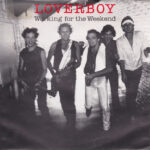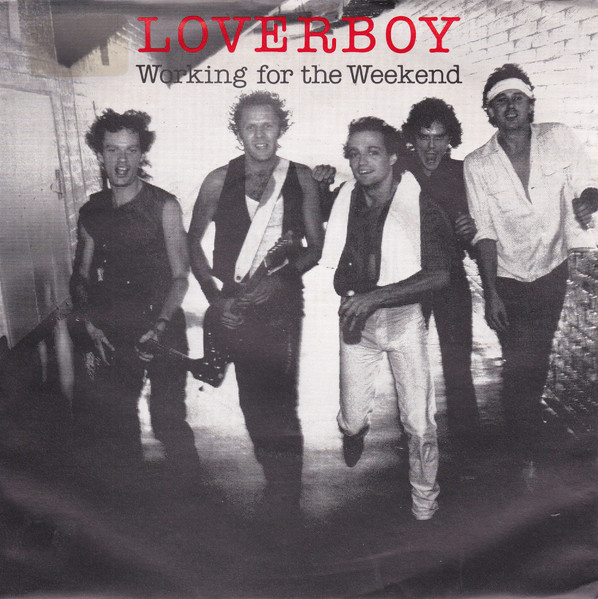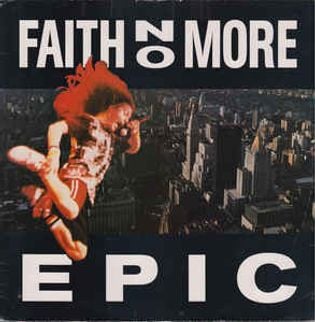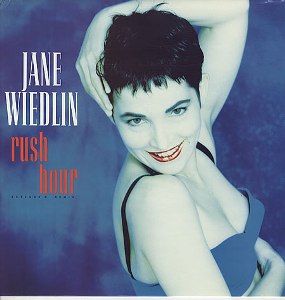 The thrill of Friday afternoon is universal. That moment when the clock ticks toward freedom, when responsibilities fade and the weekend promises excitement, adventure, and perhaps a little mischief—it’s a feeling that transcends generations. In 1981, Canadian rock band Loverboy captured that exact pulse with their electrifying hit “Working for the Weekend.” From the opening guitar riff to the anthemic chorus, the song became more than just a chart-topping single; it became a cultural touchstone, a rallying cry for anyone who’s ever felt trapped by the daily grind and longed for liberation. Over four decades later, its irresistible energy continues to resonate, defining the essence of rock-driven weekend anticipation.
The thrill of Friday afternoon is universal. That moment when the clock ticks toward freedom, when responsibilities fade and the weekend promises excitement, adventure, and perhaps a little mischief—it’s a feeling that transcends generations. In 1981, Canadian rock band Loverboy captured that exact pulse with their electrifying hit “Working for the Weekend.” From the opening guitar riff to the anthemic chorus, the song became more than just a chart-topping single; it became a cultural touchstone, a rallying cry for anyone who’s ever felt trapped by the daily grind and longed for liberation. Over four decades later, its irresistible energy continues to resonate, defining the essence of rock-driven weekend anticipation.
At its core, “Working for the Weekend” is deceptively simple. Its lyrics are straightforward: a tribute to the hardworking men and women who live for those precious days of freedom. Yet the song’s genius lies in its execution. It fuses a propulsive rhythm section with fiery guitar lines, soaring vocals, and a melody that seems custom-made for stadium singalongs. The song is at once celebratory and urgent, encapsulating the universal tension between work and play. For many listeners, it isn’t just a song—it’s a soundtrack for life’s most anticipated two days.
Loverboy and the Rise of Arena Rock
By 1981, Loverboy had already begun to make a name for themselves in the Canadian music scene. Hailing from Calgary, the band consisted of Mike Reno (vocals), Paul Dean (guitar), Doug Johnson (keyboards), Scott Smith (bass), and Matt Frenette (drums). Their self-titled debut album in 1980 had established them as a hard-rock outfit with a knack for crafting infectious hooks. But it was their second album, Get Lucky, that would truly propel them into international recognition.
“Working for the Weekend” opened Get Lucky with a burst of energy, immediately signaling the band’s intent to dominate both radio and arena stages. Arena rock was thriving in the early 1980s, with bands like Journey, REO Speedwagon, and Foreigner capturing audiences with their bombastic, melodic anthems. Loverboy fit perfectly into this scene, blending hard rock riffs with pop sensibilities and vocals designed to soar above thousands of screaming fans. Yet unlike some of their contemporaries, Loverboy brought a playful exuberance to their music, a sense of fun that made “Working for the Weekend” feel inclusive and celebratory rather than purely indulgent.
The Anatomy of an Anthem
From the very first measure, “Working for the Weekend” grabs listeners. Paul Dean’s opening guitar riff is crisp and immediate, cutting through the mix with precision. It’s a riff that demands attention, a musical hook as instantly recognizable as the song’s title. Doug Johnson’s keyboard textures add a shimmering layer, enhancing the sense of excitement and anticipation. And then Mike Reno’s vocals enter—confident, energetic, and charismatic. He doesn’t just sing; he rallies, encouraging listeners to embrace the exhilaration of escaping the workweek’s monotony.
The chorus is the song’s defining moment:
“Everybody’s working for the weekend / Everybody wants a new romance.”
It’s simple, it’s catchy, and it’s universal. The repetition turns it into an anthem, a phrase that audiences can chant, sing, or shout along with, whether in a concert arena or the privacy of their own car. The song’s driving rhythm, anchored by Frenette’s drums and Smith’s bass, mirrors the heartbeat of someone counting down the hours until freedom. It’s rock music engineered for collective joy.
Lyrics that Resonate
While the musicality of “Working for the Weekend” is critical to its success, the lyrics are equally significant. The song taps into a shared cultural experience: the labor of the week followed by the liberation of the weekend. Unlike some rock songs that dwell on heartbreak or rebellion, Loverboy celebrates normal, everyday pleasure. The verses describe ordinary life with relatable imagery—grinding through work, waiting for that moment when responsibility lifts, and anticipating social and romantic possibilities.
The genius of the lyrics lies in their accessibility. They don’t require deep interpretation or context. Anyone who’s ever felt the weight of a Monday-to-Friday grind instantly understands the thrill Reno describes. The lyrics don’t moralize; they empathize. They say: yes, life can be routine, but those two days of freedom are worth everything. In that sense, the song is almost therapeutic—it validates the listener’s desire for escape, even if only temporarily.
Cultural Impact
Upon its release in 1981, “Working for the Weekend” quickly became a commercial and cultural phenomenon. It charted highly in both the U.S. and Canada and became a staple on FM rock radio. Its popularity was aided by the rise of MTV, which launched in 1981, giving visually engaging rock videos a powerful platform. Loverboy’s energetic performance style and charismatic frontman translated well to the new medium, further cementing the song’s reach.
Over the years, “Working for the Weekend” has been featured in countless films, television shows, and commercials, often used to evoke the anticipation and excitement of Friday or Saturday nights. Its themes are timeless, allowing it to remain relevant decades after its initial release. The song’s presence in pop culture is a testament to its enduring appeal and the universality of its message: everyone longs for freedom, and music is the perfect vehicle to celebrate it.
Live Performances and Audience Connection
One of the reasons “Working for the Weekend” remains a beloved anthem is its live performance energy. Loverboy’s concerts in the early 1980s were legendary for their infectious enthusiasm and audience participation. When Reno would launch into the chorus, the crowd would inevitably join in, creating a communal experience of shared anticipation and release.
The song’s structure is perfectly suited for live settings. The driving tempo, soaring chorus, and dynamic instrumentation create moments of collective euphoria. It’s a song that’s not just heard—it’s felt. Fans often describe the experience of singing along as cathartic, a moment where the week’s pressures melt away. This connection between performer and audience is a hallmark of arena rock, and “Working for the Weekend” exemplifies it beautifully.
The Production of a Classic
Producer Bruce Fairbairn played a key role in shaping the sound of Get Lucky. Known for his work with Aerosmith and Bon Jovi, Fairbairn had a talent for balancing polished production with raw energy. On “Working for the Weekend,” he ensured that every element—from Dean’s crisp guitar riffs to Johnson’s shimmering keyboards—shone without overwhelming the vocal line. The mix is bright, punchy, and radio-friendly, yet it retains a sense of immediacy and excitement.
Fairbairn’s production emphasizes the song’s infectious rhythm, making it impossible to sit still while listening. The careful layering of instruments, the precise timing of vocal harmonies, and the attention to dynamics all contribute to a track that is both fun and technically impressive. It’s a masterclass in crafting a rock anthem that can stand the test of time.
Why It Endures
What sets “Working for the Weekend” apart from other rock hits of its era is its universality. It’s not a song about fame, heartbreak, or rebellion—it’s a song about something nearly everyone experiences: the desire for freedom and fun. Its appeal transcends age, geography, and background, making it relevant for generations of listeners.
Moreover, the song perfectly captures the energy and optimism of early 1980s rock. It embodies the spirit of a time when music was bold, ambitious, and designed to bring people together. Its combination of catchy hooks, relatable lyrics, and electrifying performance ensures it remains a staple of classic rock playlists, sports arenas, and social gatherings.
Influence and Legacy
Over the decades, “Working for the Weekend” has influenced countless artists and has been referenced in popular culture numerous times. It’s often used to evoke nostalgia for the 1980s, but its themes are timeless. The song has appeared in films like Goonies 2 (conceptually, though more broadly as part of rock culture), in television shows, and even in commercials celebrating leisure and consumer freedom. Its status as a quintessential rock anthem ensures it continues to reach new audiences, reinforcing Loverboy’s place in rock history.
The track also embodies the ethos of Canadian rock, showcasing the country’s ability to produce globally appealing music without sacrificing personality or originality. Loverboy’s success opened doors for other Canadian acts and helped solidify the country’s reputation in the international rock scene.
The Emotional Resonance
While “Working for the Weekend” is undeniably fun, it also resonates on a deeper emotional level. It captures the tension between obligation and desire, the push and pull of work and play. That tension is universal—regardless of profession, age, or era. The song validates the listener’s desire for joy, reminding us all that the effort we expend during the week is meaningful because it makes the weekend sweet.
There’s also an element of camaraderie in the song. The use of “everybody” in the chorus invites inclusivity. It’s not just one person celebrating the weekend—it’s a collective experience. This creates a sense of connection among listeners, a shared acknowledgment that life is both work and celebration.
Conclusion: Forever the Anthem of Anticipation
“Working for the Weekend” by Loverboy is more than just a catchy rock tune—it’s an enduring celebration of freedom, anticipation, and the joy of escape. Released in 1981 as part of their Get Lucky album, it captured the energy of early ’80s arena rock while tapping into a universal human experience: the thrill of Friday and Saturday nights.
Its infectious melody, soaring chorus, and relatable lyrics transformed a simple idea into an anthem that has resonated for over four decades. Whether blasting from car speakers, filling concert halls, or providing the soundtrack to countless weekends, the song remains a testament to the power of rock music to uplift, energize, and connect people across time and space.
Loverboy succeeded in creating more than a hit—they created a cultural touchstone. “Working for the Weekend” continues to remind us all of the exhilaration of liberation, the joy of shared experience, and the enduring magic of a well-crafted rock anthem. It’s not just a song; it’s the soundtrack of freedom itself, echoing through the decades and continuing to make listeners around the world jump, sing, and celebrate life’s well-earned pauses.



